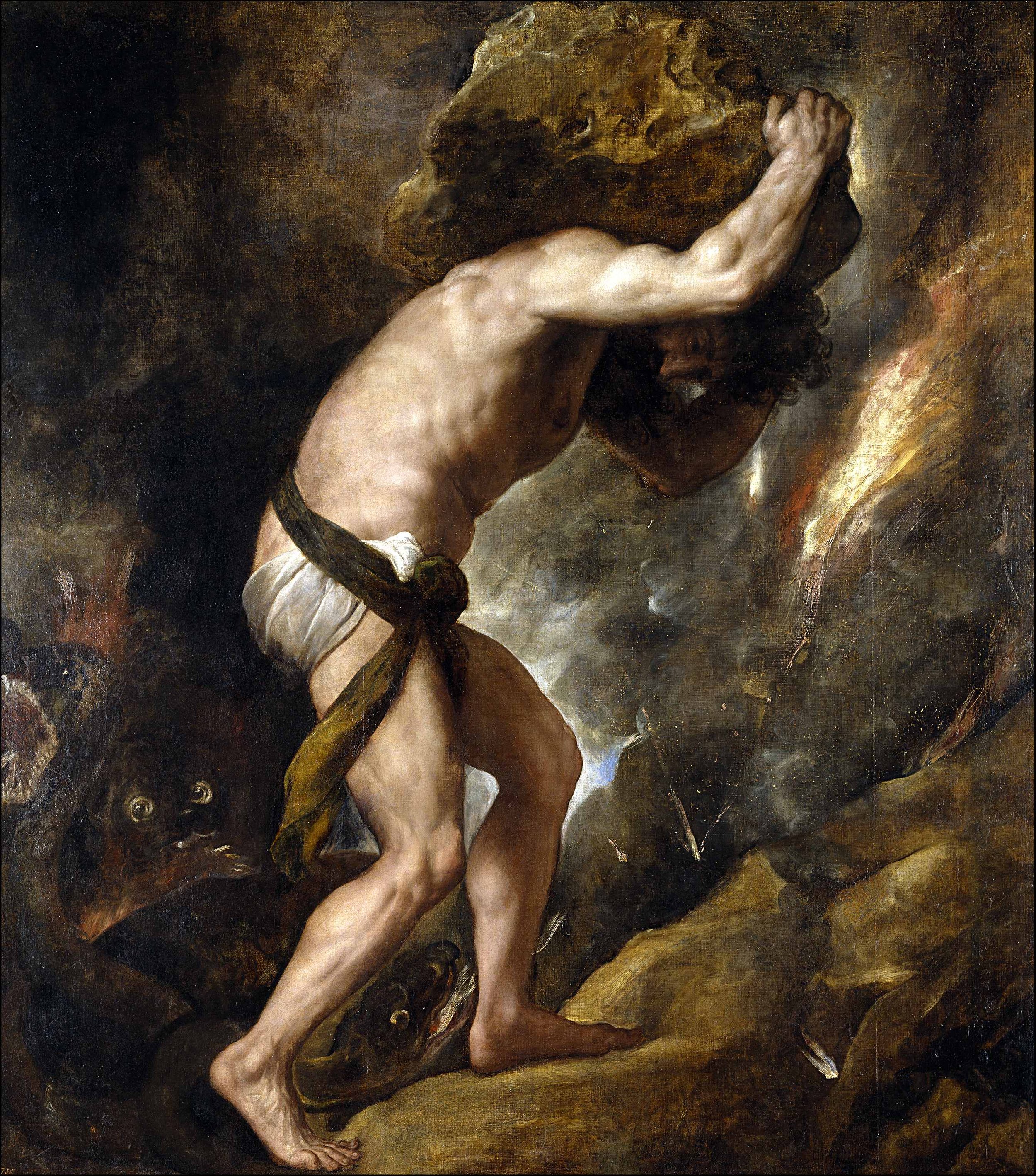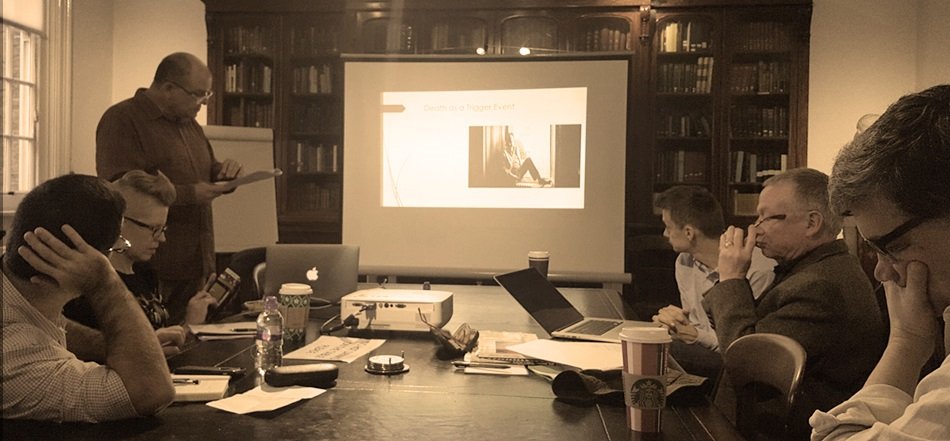
Conference 2022
Location: London, UK
Dates: 22nd & 23rd October 2022
Programme
Day #1: ‘Quintessential Works’
Panel #1: The Myth of Sisyphus
10.00-10.45: Simon Lea, ‘Untangling the questions raised in The Myth of Sisyphus’
10.45-11.00: Break #1
11.00-11.45: Denise Schaeffer, ‘Camus versus de Beauvoir on Ambiguity and the Absurd’
11.45-12.45: Q&A #1
12.45-14.45: Lunch
Panel #2: The Fall
15.00-15.45: David Hoinski, ‘In Denial: The Dialectic of Innocence, Guilt, and Forgiveness in Camus’s The Fall’
15.45-16.00: Break #2
16.00-16.45: David Langwallner, ‘Albert Camus’s The Fall. (1956) Quintessential Lawyer for Our Time’
16.45-17.45: Q&A #2
Day #2: ‘Social Aspects and Other Fictions’
Panel #1: Camus’s Social Aspects
10.00-10.45: Eric Berg, ‘A Defense of Camus’ Invisible Arabs in The Plague by way of Steven Leuthold’s Indigenous Aesthetics’
10.45-11.00: Break #1
11.00-11.45: David Platten, ‘A Diet of Roots and Thistles. Poverty and Oblivion in Misère de la Kabylie (1939) and Le Premier Homme (1960)’
11.45-12.45: Q&A #1
12.45-14.45: Lunch
Panel #2: Camus’s Other Fictions
15.00-15.45: Erik Noonan, ‘The Ambiguity of Drama in Camus’
15.45-16.00: Break #2
16.00-16.45: Peter Francev, ‘Gushing Over Nature, or Janine’s Sexual Exhibitionism’
16.45-17.45: Q&A #2

Abstracts
Eric Berg: ‘A Defense of Camus’ Invisible Arabs in The Plague by way of Steven Leuthold’s Indigenous Aesthetics’
The dilemma Camus and Camus’ scholars face: how to attend to the Arab population in Algeria in his work. As an author of fictional works set in Algeria in the twentieth century, Camus must either remain silent or incorporate the Arab population into his work especially in The Plague. If the Arab population is ignored, and they are, he must offer a justification, and he does. In 1951 Camus offers a response to this criticism and his response reinforces my argument quite well. In this paper I will offer a defense of Camus’ silence based on the work of American scholar Steven Leuthold drawn primarily from his work Indigenous Aesthetics: Native Art, Media, and Identity. A central claim from Leuthold makes my ultimate point. Leuthold writes “The struggle for control of identification occurs through the process of representation, processes which include not only what is portrayed, but also how the subject is portrayed.”
Peter Francev: ‘Gushing Over Nature, or Janine’s Sexual Exhibitionism’
For the past few years, I have been interested in the topic of Albert Camus and empathy and, rightfully so, as I am currently writing a monograph on the subject, it makes sense that I would be interested in such a subject. However, for as long as I have been formally and informally studying Camus (which is surpassing 25 years), I have always been plagued (no pun intended) by the seemingly hard-lined interpretation that the protagonist of one of Camus’s most recognizable short stories ‘The Adulterous Woman’, Janine has been largely contextualized as an unhappily married woman to her husband Marcel and has an ‘affair’ of sorts that is anything but sexual. In this paper, I plan to quickly examine what previous scholars have said about Janine, her mental state of mind and her supposedly adulterous actions, before I offer what seems to me a rather conventional and entirely plausible reading and interpretation of the short story, including Janine’s indeed adulterous actions. And this is not to say that Janine cannot be linked to previous Camusian characters who are both female and aware of their sexuality, namely Marie from The Stranger.
David F. Hoinski: ‘In Denial: The Dialectic of Innocence, Guilt, and Forgiveness in Camus’s The Fall’
In the course of a few days’ conversation Jean-Baptiste Clamence, the narrator of Camus’s The Fall, articulates an account of human psychology that is in tension with itself insofar as it maintains two apparently contradictory theses. These are: (1) that our most natural belief is the belief in our own innocence (O’Brien translation, 80-81) and (2) that it is impossible to escape judgment primarily because we are the first to condemn ourselves (Ibid., 131). Although we might attempt to explain away this opposition by concluding that Clamence simply vacillates, at one moment maintaining the innocence-thesis and at the next holding the self-condemnation view, I argue instead that these apparently contradictory positions are in fact tied by a (not-so-) secret link: the autarkic fantasy at the heart of Clamence’s discourse. This fantasy of self-sufficiency necessarily involves a desire to avoid being judged by others, whether by clinging to the natural belief in our own innocence or by applying the more sophisticated tactic of condemning ourselves and thus beating others to the punch. Despite their manifest service to the fantasy of autarky, however, neither self-condemnation nor innocence are mere ruses; they are also genuinely held positions divided from each other by the kind of fall from grace that Clamence’s story exemplifies. Here we must think of the two positions as stages on life’s way, with self-condemnation representing moral progress even though it is disastrous to remain at this stage. In order to avoid this all-too-common catastrophe, we must proceed to a further stage that Clamence can only rather hopelessly gesture towards, namely, forgiveness.
David Langwallner: ‘Albert Camus’s The Fall. (1956) Quintessential Lawyer for Our Time’
The implicit argument in this text, an application of The Law and Literature Movement, is that a literary text in this case The Fall (1956) by Camus says more than dry recollection, memoirs, anecdotes or indeed systemic treatises about what it is to be a lawyer. The text parses The Fall to highlight themes of professional hypocrisy, questions of post truth and the representation of the innocent as well as the nature of lawyering in an uncharitable universe. The Fall may be the least celebrated of his triumvirate of great novels all of deep relevance to our times, but it says more to lawyers about lawyers and gives us pause to reflect about our craft.
Simon Lea: ‘Untangling the questions raised in The Myth of Sisyphus’
For a short monograph The Myth of Sisyphus raises a number of very tricky overlapping questions that can be maddening for the careful reader to untangle. Taken together, they can be read as Camus’s attempt to overcome the so-called wisdom of Silenus; that is, the best thing for human beings is to have never been born at all and the second best is to die as soon as possible. A useful shorthand for this notion is the idea that life, itself, is not worth the effort of living. Accordingly, Camus’s essay is an attempt to overcome the idea that life is somehow not worth living; or in the author’s words: the problem of suicide.
Inspired by Nietzsche, whose work is permeated throughout with an obsession over Silenus, Camus explores the relationship between experiences of the absurd and an inability to overcome the wisdom of Silenus. According to him, the absurd only arises in cultures that have attempted to divest themselves of myth; thoroughly mythologically-imbued societies experience no problem with the absurd. In short, the absurd is only a problem for cultures attempting to eschew mythological thinking.
In The Myth of Sisyphus, Camus follows Nietzsche’s lead by asking what new myths societies such as our own need to create in order to overcome Silenus and the absurd. He ends by offering his own version of the Sisyphus myth as a possible candidate. In so doing, Camus raises many tricky and overlapping questions that must first be untangled before we can even hope to address them.
These questions cover, amongst other things: the difference between individual lives and ‘life itself’; the possibility of giving a value to life; the difference between the idea of life being meaningless and life being incomprehensible; the role played by mythological thinking in the creation of meaning; the limits of a life devoid of myth; the possibility of creating new myths; and why we must imagine Sisyphus happy.
In my presentation, I aim to draw out the most important questions raised by Camus in The Myth of Sisyphus to see whether they cohere into a single large question raised and answered within the essay or whether Camus leaves anything hanging, unanswered, confused or so on. In doing so, I seek to address the concerns of critics such as Sherman and Ayer that Camus either becomes confused along the way, conflates particular ideas, or that the whole essay itself is a pointless lament.
Erik Noonan: ‘The Ambiguity of Drama in Camus’
Abstract: Throughout the oeuvre of Albert Camus, there runs a current of ambiguity, easy to discern once it’s pointed out, but difficult to practice as a follower of the author. It is to be found at the center of all human affairs. Far from corroding the urgency of our deeds and words, however, it impels them onward, with a force that’s their own, and not their own. Such ambiguity is inseparable from the form of each of Camus’ works. Its character at every phase of his career depends on the manner of its elevation from theme to form, a question of technique. No matter whether Camus writes as a philosopher, a journalist, a novelist, or a playwright, the dramatist is never absent. Indeed the drama controls the vision, stations the parts of the piece against one another. Drama brings out an internal tension that excites. Camus’ term for this drama of the mind and the senses is the absurd, a feeling born of a confrontation between fact and reality, action and world. “The work then,” he writes, “embodies an intellectual drama.” What I wish to focus on in this talk is the ambiguous nature of this drama, not in a text per se, but where it dwells within the imagination of the writer, as he writes. Camus avant la lettre.
David Platten: ‘A Diet of Roots and Thistles. Poverty and Oblivion in Misère de la Kabylie (1939) and Le Premier Homme (1960)’
Like terror, justice and freedom, poverty was a touchstone of Camus’s political outlook, but his contribution to social and political literature on the theme of poverty is undervalued. This paper will briefly explore Camus’s thinking on the impact of poverty on human existence through reference to two texts which bookend his life and career. Through Misère de la Kabylie, which is a kind of a literary ethnography researched and first published in July 1939 in the left-leaning newspaper Alger Républicain, a political and ethical philosophy takes concrete form. In Le Premier Homme, Camus shows not only how while alive the poor are ignored and disenfranchised, but how when dead they simply pass into oblivion, lacking the mechanisms of commemoration that operate at other social strata. Thus, a good part of the restorative flavour of Le Premier Homme, which has been feted as a work which returns Algeria to Algerians, stems from the way in which characters from the author’s childhood who might otherwise have been lost to history, are identified, celebrated and ultimately commemorated in literature. Translations of all quotations in French will be supplied.
Denise Schaeffer: ‘Camus versus de Beauvoir on Ambiguity and the Absurd’
Abstract: This paper will explore Simone de Beauvoir’s tacit dialogue with Camus in The Ethics of Ambiguity. In The Ethics of Ambiguity, de Beauvoir sharply distinguishes the concept of ambiguity from absurdity. Distancing herself from Camus, she argues that ambiguity offers a superior conceptual framework for understanding the world and the place of human beings in it. However, her characterization of the absurd oversimplifies some important dimensions of Camus’s philosophy. Specifically, she conflates the feeling of the absurd and the concept of the absurd, which Camus distinguishes in ways that have significant implications for responding to de Beauvoir’s critique. I argue the concepts of ambiguity (as de Beauvoir understands it) and the absurd (as Camus understands it) are closer than they first appear.